Dr Kim Jelfs
Kim Jelfs has worked at Imperial College London since 2013 where she holds a Royal Society University Research Fellowship.
I live just outside London with my husband and daughter. My husband and I met during my PhD and we both do materials modelling; and we are both TYC PIs (my husband is Martijn Zwijnenburg at UCL). We had our daughter in 2017 and after I took a period of maternity leave, we shared parental leave between us which worked out great. I did my PhD at UCL in computational modelling of zeolites, before I went to Barcelona and Liverpool. In Liverpool I worked with experimental groups, mostly that of Prof. Andy Cooper FRS, to use computation to assist in material discovery. That’s when I moved into focusing on organic-based materials. In 2013, I got a Royal Society University Research Fellowship and started my independent research career at Imperial College.
– What is the basis of your research
The central theme to my group’s research is in the development and application of computational software to accelerate the discovery of molecular materials – materials built from organic building blocks. Our software combines the building blocks into possible assemblies, looks for low energy structures and then assesses their properties. We are increasingly using artificial intelligence techniques, including evolutionary algorithms and machine learning. We focus on porous organic molecules, small organic molecules and polymers, investigating them for molecular separations and for use in organic electronics.
– Notable collaborations
A key feature of my research has been close collaborations with experimental partners, who we work closely with to understand their materials and the issues faced from their perspective, and who (hopefully!) realise our computational predictions in the laboratory. These collaborations are a really fun part of my job.
– What has been your career highlight/biggest achievement
In terms of my career, I think both getting the Royal Society University Research Fellowship and getting a job are the biggest highlights, and certainly something I would never have believed would happen as a PhD student – indeed I thought it was so unlikely that I had no intention of pursuing a career in academia. I’m also proud that I managed to get a ERC Starting Grant in 2017 while on maternity leave – I took my 8-week old daughter and husband to Brussels in order to do the interview.
– What you enjoy most about your work
I enjoy most sharing in the successes of my research group – their first paper, future career success, prizes and so on. It’s also a joy when one of their predictions is realised in the lab.

